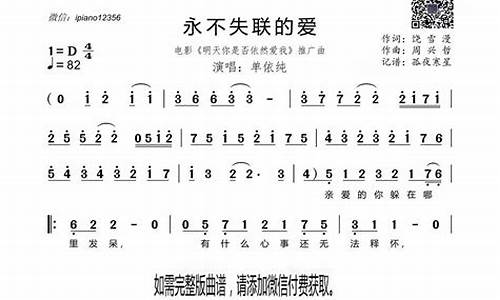1.aaa颁奖典礼是什么
2.seven是几代团
3.Trace Adkins的《Hot Mama》 歌词
4.小学英语单词大全
5.阿拉亚·爱尔柏塔·亥盖特的获奖情况
6.小学一至五年级英语单词

#教案# 导语四年级的学生接触英语已有一年之久,对英语学习的积极性与参与性较高,好动好胜,喜爱小组比赛。同时他们在认读和自学方面比起三年级均有一定程度的提高,能够听音指读、听音选择、听音填空等,能够认读基本单词,并能借助图文了解课文大意。 准备了以下内容,供大家参考!
篇一 《seven.eigh..》
课题累型:
新授
教学目标:
1、基础目标
(1)学生能听、说和认读thir、four、fif、six、seven、eigh、nine、twenty八个数字单词,并做到发音正确、规范。
(2)帮助学生在学习新知识的过程中复习旧知识,并能结合已学句型“How many……can you see ?/ Do you he?/ I can see……/ I he……/等句型进行回答、替换和运用。
2、拓展目标
(1)将单词教学融入句型及对话教学之中,鼓励学生在实际情景中恰当地运用已学句型。
(2)培养学生的注意力和观察力,发展学生的发散思维,激发学生的学习兴趣,培养学生的协作精神。
教学重点:
掌握八个新授数字单词,并能结合已学知识在实际情景中运用。
教学难点:
thir、 fif、 eigh、 twenty的发音。
教学准备:
录音机和磁带,教师自己准备的一幅彩图画,数字单词卡片,在讲台上放15本书,一个盒子,18支铅笔,一个篮球。
学生分析:
本单元授课对象是农村小学四年级学生。经过一年多的学习,对英语保持着浓厚的兴趣 。在上册对1—12的数字的英语学习后,他们期待后面更大数字的学习。所以这一单元,特别是数字词汇的学习,他们会学得主动而轻松。因为教师对学习的了解,本单元就该更关注后进生,给他们更多的机会表现自己,激发他们的学习积极性,让所有学生自然地同步前进,并为接下去的学习打好基础。
教学过程:
一、Warm-up/Revision(热身、复习)
1、Everyday English(每日英语)
2、Sing a song.“Ten Little Candle Dance”(师生表演唱)
3、Introduce themselves to new teachers (自我介绍)
Eg:My name is……。I’m a girl/ boy.
I’m from……I like……etc.
4、Play a guessing game(猜数字)
T:which number is in my pocket?
二、Presentation(新知识呈现)
1、Learn to say new words.(学习新数字)
(1)数学练习,学习thir(13)
A、从5+5=10,5+6=11,5+7=12,5+8=13,引出数字thir,并练习朗读该单词。(跟读,开火车读,齐读)
B、Make 13 (让学生用英语编数学算式?+?=13)
Eg:What’s six and seven? Six and seven is 13.
C、用英语讲解西方国家对13的看法,结合数字讲解西方人很忌讳13,并举例说明。
(2)实物呈现,学习fif(15)
A、引导学生利用身边的东西(如书本、同学、书包等)来数一数和说一说。
Eg:T:Look!what are they? Ss:Books.
T:How many books can you see?
Let’s count,please.
Ss:One,two……fif. B、练习朗读该单词(跟读,打行读,小组读,齐读)
C、用15造句子。
Eg:This is 15. Seven and eight is 15.
I like 15. My brother/ sister is 15.
I he fif……
(3)猜一猜,学习eigh(18)
A、T:I he something in my bag. Guess. What do I he?
Ss:……
T:Look!What are they?
Ss:Pencils.
T:How many pencils do I he? Guess. Please!
Ss:……
T:Open it and see. Count please. One……eigh. Oh, eigh pencils. That’s right. I he eigh pencils.
B、练习朗读该单词(跟读,开火车两人读,小组读,齐读)
C、用eigh说词组。
Eg:eigh books
eigh dogs……
(4)看一看,听一听,数一数,学习twenty(20)
A、T:(拿着球)Look, What’s that? Oh, It’s a ball. I like balls. And I can bounce the ball. Now, I bounce the ball, please count!教师拍球,学生数数,数至20,然后故意把球拍丢了。
B、练习朗读该单词(跟读,指读,男女读,齐读)
(5)看图添画,学习14、16、17、19。
教师也用简笔画边画苹果,边提问学生:What can you see? How many les can you see?(本环节的教学内容可以从数字12添到20。再出示这几个数字卡片让学生读一读。)
2、Listen and repeat.(先给学生听一遍录音,让学生复述自己听到的,然后再翻书指着单词跟读)
3、小结规律,让学生看着黑板上8个新数字,读一读,你发现了什么?让学生明白13、15、18、20的读音是没有规律的,而14、16、17、19是比较简单,只要在4、6、7、9后加[ti:n]。
三、Practice and consolidation(操练和巩固)
1、明辩是非读单词。(教师指着黑板上的单词,如果指的和读的是一致的学生就跟,反之保持沉默)
2、听音举卡片,老师说一个数字,学生要边讲边举起该数字卡片,比一比哪一组动作最快。
Eg:T:Thir, thir, Where is 13?
Ss:Thir,thir, Here it is.
3、同桌游戏(划拳),两人各出示手指表示的数字再两个相加,谁先把答案说出来,谁就可赢得对方的卡片,看谁的卡片赢得的多为胜者,可用以下句型出示手指。
Eg:How many, how many fingers?
Five and seven is twelve. How old are you? How old are you? I’m____
四、Extension(拓展)
Talk about the picture
教师出示一幅课前画好的彩图(类似活动手册第16页,图的量还可加大,丰富一下,还加上风筝、白云、小鸟、花草等,把颜色、数字、动植物都画进去)。
教师引导学生就图展开讨论,教师先示范引导:Look this is a picture. Is it beautiful? What can you see? What colour? How many? ……
让学生先小组讨论时尽量运用所学句型,最后让几对学生到讲台前谈论图画,展示他们的讨论结果。教师可适时板书几个句子。
五、Homework(自选)
1、一:(1)模仿录音朗读3遍,并制作自己的英语录音专集。
(2)Listen and connect the dots.(听音连点)
2、二:Read, think and write.(看、想、填)
five fif six twelve eigh
seven thir nine
3、三:Make a survey.(填写调查表,请用上How many…do you he?I he…。You he…)
板书设计:
Unit 1 …seven,eigh,nine,twenty!
A & B Let’s learn Let’s play
5+6=11 5+7=12 5+8=13 thir
4→14 four
15 fif
6→16 six
7→17 seven How many……?
18 eigh They are……。
9→19 nine How nice!
20 twenty The orange one is a bird.
篇二 《There are twelve months.. 》
一、教材分析:学习7-12月份
二、教学目标
1、知识目标:
1)基本能够听懂,会说,会读词汇:July, August, September, October, November, December.
2)学会用“There are…birthdays in …”以及“There is one birthday in …”的语言结构。
3)复习词汇:flowers, festival, birds, snow, rain, warm, hot, cool, cold, sunny.
2 技能目标:谈论月份以及关于各个月的情况。
3情感目标:从小培养学生爱护环境的意识。通过学习月份的歌曲,培养学生的乐感和美感。
三、教学重点:词汇:July, August, September, October, November, December.
“There are…birthdays in …”以及“There is one birthday in …”的语言结构。
教学难点:November的读音。
四、教学准备:录音机、磁带,教学卡片、挂图、日历等。
五、Teaching steps:
Step1: Warmer
1. Greetings
T: Hello, boys and girls. Ss: Hello, Miss Yi.
T: How are you today? Ss: I’m fine , thanks . And how are you?
T: I’m great. Thank you so much. Look! How is the weather today?
Ss: It’s sunny today.
T: How do you feel now? Are you hy? Ss: Yes. We’re so hy.
T: Let’s sing a song , ok? Ss: OK!
T& Ss: Spring is warm, spring is warm.
Summer is hot, summer is hot.
Autumn is cool, autumn is cool.
Winter is cold, winter is cold.
2. 复习1-6月份的英文。
Step2: Presentation
1、Lead in
T: How many months are there in a year?
Ss: There are twelve months in the year.(引出课题)
板书:Unit 2 There are twelve months in the year.
T: Let’s pass the toy dog and say the words from January to December.
Ss: January, February, March, April, May, June….接着老师带着学生一起说: July, August, September, October, November and December. (在游戏的过程中引入新单词)
T: Today, we’re going to learn the months.
2、教授—July
T: Boys and girls, let’s play a game, ok? Ss: OK!
T: I will speak these names of the months. And you can show me your fingers to show. Ss: Yes.
T: May. Ss: (show five fingers) May.
T: March. Ss: (show three fingers) March.
T: July. 提示学生show seven fingers. (July)
T: Do you like July?
S1: Yes. I like July. We can go to the park in July.
3、教授—August
T: How old are you?
Ss: I’m 10 years old.
T: When is your birthday?
Ss:八月。
T: Oh , your birthday is in August. Whose birthday is also in August?
S2: My birthday is in August, too.
T: How many birthdays are there in August?
Ss: There are….
4、教授-- September
T:Boys and girls, when is Teacher’s Day? Who can tell me?
S3: 九月十日。
T: You’re so clever. September,10 th . Do you like September?
S4: Yes. I like September .
T: What can you do?
S5: We can go to school.
T: Sounds great.
5、教授—October
T:You can guess so well. Do you know which month it is? “ It’s cool and it’s in Autumn. There are 31 days in it. And there is National Day ,too.”
S6: October.
T: Yes, you are right.
6、教授—November
T: I like November. What do you like?
S7: I like June.
S8: I like March.
T: Do you like November?
Ss: Yes, we like November.
7、教授—December
T: Oh ,I’m a weather reporter now. In Beijing , it’s cold and there is snow in December . (播报天气预报)Can you hear which month it is?
Ss: 十二月。
T: December . Whose birthday is in December?
S9: My birthday is in December.
T: How many birthdays are there in December? Let’s count.
Ss: There are ….birthdays in December.
T: I heard Ms Smart are counting birthdays now. Please listen to the tape.
Step3: Practice
1. Listen and do.
T: Boys and girls , please listen and do.
T:1) Whose birthday is in July? Please Stand up.
2) Whose birthday is in August? Put your hands on your head, please!
3) Whose birthday is in September? Touch your ears, please!
4) Whose birthday is in October? Clap, please!
5) Whose birthday is in November? Point to the teacher, please !
6) Whose birthday is in December? Laugh, please!
2. Group work
完成课本活动3:先请几个学生朗读对话示例,然后把学生分成小组,让他们根据图中给的信息展开对话,发表自己对各个月份的看法。
e.g. S1: Do you like January?
S2: Yes, I like January .
S1: Why?
S2: There are lots of festivals.
S3: Which month do you like?
S4: I like October.
S3: Why?
S4: We can fly kites.
S5: Which month is your fourite?
S6: My fourite month is June.
S5: Why?
S6: It’s warm. I can ride a bike
Homework:1熟记1-12月份的单词
2、询问父母,然后在课堂上互相介绍自己父母的情况。
篇三 《There is one birthday in may》
内容分析:
本课是新标准英语(三年级起始)第三册第十模块,它的语言功能主要是运用There be句型去描述与月份相关的事情。第一单元以故事情境——Lingling与MsSmart谈论玲玲朋友生日个数的对话呈现,主要是在巩固There be句型的同时学习1——6月份的表达方式。第二单元则是继续描述7——12月份生日个数的情况,并谈论全年不同月份当地的天气状况以及喜欢的运动。本模块预计四课时完成,本课时为第一课时。
情况分析:
(1)四年级的学生接触英语已有一年之久,对英语学习的积极性与参与性较高,好动好胜,喜爱小组比赛。同时他们在认读和自学方面比起三年级均有一定程度的提高,能够听音指读、听音选择、听音填空等,能够认读基本单词,并能借助图文了解课文大意。
(2)在本学期第一模块学生已经学习了数词1—100,对于How many? There be 句型在听力方面也有感知与理解。同时,课文中的单词march, birthday, hy等词语学生比较熟悉,结合对话语境能够较快理解课文的背景。
教学目标:
(1)知识能力目标
①能够寻找单词中发音相同的字母组合,以旧带新,听懂、辨别并认读1—6月份的月名,January\ February\March\April\May\June。
②能够在倾听完整语篇情境中看图了解对话内容,并了解、运用There be 句型描述数量。如,January. There are three.
(2)情感态度目标
①培养学生对所学英语中接触的外国文化知识的兴趣。
②让学生通过课文的学习感受生日聚会的快乐,并能在自己快乐的同时表达对父母的爱。
教学重点:
(1)单词:January\February\March\April\May\June
(2)句型:“There be”功能句的简单运用
教学难点:
(1)单词:January和 February单词比较长,记忆比较难;而April\June则是发音难点。
(2)There is和 There are 学生对单数复数概念模糊,容易搞错。
教学过程:
一、Warmer
1、Play a Game: Count count count数数看
T claps hands and asks Ss “How many are there?”
Ss listen ,count and try to say the number or the sentence “There is/ are…”
设计意图:用老师拍手,学生数数的活动作为热身,既能复习数字,又能在听力方面不断倾听句型There be,为学生在听后运用句型There is / There are做铺垫。
2、Lead in the evaluation
(1)Put up the cards of the months(出示1—6个月的月份卡,排成桥型),let Ss count the cards and learn to say “There is/ are…”;(板书主要句型于黑板四线格上,并用不同色粉笔突出is和are)
Ss count and learn to say and make out “There is ”and “There are”
(2)Talk about the evaluation——分组PK
设计意图:巧妙呈现本节课的课堂评价方式:把月份卡(六个月份名的缩写制作成椭圆形卡片)排成桥形贴在黑板上,把全班分成两个小组,要求各小组通过课堂上的表现力争尽快从此岸到达彼岸。同时,通过月份卡的呈现,引导学生数数,并学习运用句型There be准确描述。
二、Lead in
1、Lead in
T:We’re counting just now. Lingling is counting, too. She is counting her friends’ birthdays.
Present the picture of Lingling’s counting by CAI
设计意图:由我们自己的数数活动过渡到玲玲的数生日的事情,直接导入课文,简单明了,切中本节课的对话背景。
2、Listen, read and find the answer
Ask Ss a question about Lingling’s counting ——“How many birthdays are there in a year?”,and let Ss open their books, then plays the tape
Ss read the book, listen to the whole lesson and try to find the answer
设计意图:通过整体语篇的听力输入,要求学生们速听速读课文,整体感知对话情境,进而思考回答问题。培养学生认真倾听,认读思考的良好自学习惯。
3、Present the Topic
Show Picture Two to Ss and present the task of this module
Read the title together: ——Module 10 The Months
Unit 1 There is one birthday in May.
S三、Presentation and Practice
1、Listen and fill in the blanks
Ask Ss the questions about Picture Two——“How many birthdays are there in January/ February/ March/ April/ May/ June?”
Ss listen to each sentence and fill in the blanks
《随堂练兵卡》一、听音填空
一月January. There are .
二月February. There are .
三月March. There is .
四月April. There are .
五月May. There is .
六月June. There are .
设计意图:抓住课文的重点段落,让学生有针对性地倾听,再通过随堂练兵一听音填空这个听力练习任务,引导学生再次边听边精读课文第二段,完成听力任务,使阅读更具目标性和实效性。
2、Learn the months
Present the months of this exercise paper(《随堂练兵卡》)by CAI and ask Ss “ 哪个月份生日个数最少?”
Ss read the paper(《随堂练兵卡》) and find out ——March / May, then learn together
(1)Present the word, the phonetic symbol and the calendar from CAI, then Listen its pronunciation
(2)Read the word by syllables and then read after T
读单词的方法:小组开火车读,大小声读,男女生读
Game: 四面开花(请一个学生起来读单词,接着此学生前后左右的学生紧跟着读。看一看哪个学生反应慢,必须再次接受处罚:独自读单词三遍。)
(3)The same way to learn the names of the other months通过提问“哪个月份生日个数最多?”“哪两个月份名称类似”等等逐一呈现剩下的月份名并学习
(4)Practice the words ——快速反应
老师说节日名称,学生对出月份英语名称;老师说月份如“五月,五月”,学生说出其对应英语名称“May”;反之亦然。
设计意图:由针对玲玲朋友生日个数的情况提问继而学习月份名,由浅入深,逐一突破重难点。在学习新单词的过程中引导学生运用以旧带新(march—— March)、比较法(February_——January)、元音音节法来突破发音难点,模仿发音,同时结合各个月份的节日、月份的儿歌来练习记忆单词。最后让学生谈论自己喜欢的月份,进行巩固拓展。
这种新旧知识滚雪球式的融合形式能充分调动学生积极的情感,变机械和单纯的游戏为情感的表达,回归语言学科教学的本质,让复习操练更具人文性和学科性特点。
3、Practice
Play a Game:Guess Which month看由来猜月份
Present the origins of the months by CAI
Ss read the origins and guess the month
CAI呈现如下。
(1)在罗马传说中,有一位名叫雅努斯的守护神,生有先后两张脸,一张回顾过去,一张要眺望未来。人们认为选择他的名字作为除旧迎新的月名,很有意义。——January
(2)这个月份正是大地回春,鲜花初绽的美好季节。由拉丁文“开花的日子”演变而来。——April
设计意图:借助外国文化知识的渗透点燃学生对月份学习的兴趣。让学生在饶有趣味的猜测中复习巩固月份单词,同时月份由来更作为课堂知识的课外延伸,达到课已尽、学无涯的目的。
4、Read the dialogue of Picture Two
Read Picture Two of the lesson after the CD—Rom
Read by themselves
四、Extensive Reading
1、Present the form,ask and answer
Present the form of the birthdays from January to June in class, ask Ss to describe it
出示一张课前老师调查的关于班级上1—6月份同学生日个数的统计表格,让学生看表格描述
2、Practice in pairs
Ss read the form and describe with partners
设计意图:语言的学习主要在于运用。在理解课文的基础上联系生活,让学生在真实自然的任务型活动中拓展运用阅读信息,补充阅读材料,让学生有话可说,提高阅读能力和语言表达能力。
五、Sum-up
Sum up the lesson and expend to the emotion education——Don’t forget to express our love to parents on our birthdays. And then finish the blackboard writing.
六、Homework
两种不同的作业供学生根据自己的需求和能力去选择完成。
继续完成调查表的内容,用There is/ There are 句型描述班上1-6月份生日的人数,并尝试仿写句子。如January. There are eight.
请你运用There are句型描述1——6月份的天数,并尝试把句子写下来。
aaa颁奖典礼是什么
17英语seven读音英 [?sevn'ti?n] 美 [?sevn'ti?n] ,
70英语Seventy读音英?['sevnti] 美?['sevnti]?
一、 seven
1、含义
num.?十七。
2、用法
这里除 eleven, twelve, thir, fif, eigh为特殊形式外,four,six,seven,nine都是由其个位数形式后添加后缀-构成。
We covered seven miles on foot.
我们步行了十七英里。
My grandmother got married at the age of seven.
我的祖母十七岁就结婚了。
二、Seventy
1、含义
七十。
2、用法
从 20——99 整数几十中除twenty,thirty, forty,fifty,eighty为特殊形式外,sixty,seventy,ninety都是其个位数形式后添加后缀-ty构成。
We had seventy acres of good irrigated land.
我们有七十英亩灌溉良田。
His grandfather is nearly seventy.
他爷爷快七十岁了。
扩展资料
seven临近单词:seventh、seven years、seven num。
Seventy临近单词:seventy one、seventy five。
一、seventh
1、含义
adj.?第十七的。
2、举例
It's his seventh birthday next Friday.
下周五是他的十七岁生日。
I came in seventh place in the games.
我获得了那项比赛的第十七名。
二、seven years
1、含义
十七年。
2、举例
I sold your father that house seven years ago.
十七年前我把那栋房子卖给你父亲的。
He is scarcely seven years old.
他将近十七岁。
三、seven num.
1、含义
十七。
2、举例
My grandmother got married at the age of seven.
我的祖母十七岁就结婚了。
We covered seven miles on foot.
我们步行了十七英里。
四、seventy one
1、含义
(=71) 七十一。
2、举例
Berry Sugar were down eight at one seventy one, on dous about the commodity price.
由于市场对糖价看跌,BERRY糖业公司股价下跌了8便士,跌至1.;71英镑。
And, in eigh seventy one, a hot dog stand opened at the Coney Island amusement park in New York City.
然后,在1871年,一个热狗专柜在纽约的兔子岛游乐园开张。
五、seventy five
1、含义
(=75) 七十五。
2、举例
Nikko is situated about seventy five miles north of Tokyo.
日光位于东京北部约75英里。
Altogether three hundred and fifty yuan. Seventy five fen. You may pay either In cash or by cheque.
分;你付现金或开支票都行.
seven是几代团
aaa颁奖典礼是指亚洲明星盛典,简称AAA,前身是GaonChartK-POP大奖。
2022AAA颁奖典礼将于13日在日本名古屋日本馆举行,当天下午2点30分开始红毯环节,并于4点正式开始进行颁奖仪式。
2022AAA颁奖礼完整版获奖名单:
演员部门
大赏=李俊昊(年度演员)
最佳艺人奖=韩素希 徐仁国 朴敏英
最佳演员奖=李宰旭 金世正 李濬荣 权俞利
最佳演技奖=黄旼炫 金永大 苞娜 崔始源
最佳配角奖=柳炅秀
新人奖=姜丹尼尔 徐范俊
Asia Celebrity 奖=金宣虎 权俞利 BKPP
Emotive 奖=罗人友
Hot Trend 奖=李俊昊 朴敏英
ICON奖=林在赫
IDOL PLUS 人气奖=金宣虎
DCM人气奖=金宣虎 金世正
New We 奖=黄旼炫 崔始源
Best Achievement 奖=权俞利
Potential 奖=姜丹尼尔
Focus 奖=周鹤年
歌手部门
大赏=New Jeans (年度表现力奖)
林英雄(年度舞台将)
IVE(年度歌曲奖)
Stray Kids (年度专辑奖)
SEVENTEEN (年度歌手奖)
最佳艺人奖=ITZY THE BOYZ THE RAMPE?
Fabulous 奖=林英雄 SEVENTEEN?
Best Musician 奖=Peck Palitchoke 崔叡娜TREASURE LE SSERAFIM NiziU?
Best Choice 奖=宇宙少女CHOCOME小分队 KARD KEP1ER Stray Kids PENTON?
新人奖=IVE New Jeans LE SSERAFIM?
Asia Celebrity= LYODRABEFIRST ITZY?
Emotive= NMIXX CRAVITY
Hot Trend 奖=IVE NiziU 林英雄 SEVENTEEN?
ICON奖=ALEXA verivery?
最佳制作人奖=Seo Hyun Joo (StarShip )
IDOL PLUS 人气奖=防弹少年团 ?
DCM人气奖=林英雄BLACKPINK?
New We= TEMPEST NMIXX KEP1ER?
Potential= lightsum TFN KINGDOM Billlie?
Focus= Lapillus TRENDZ ATBO? 作者:乌龙rok
Trace Adkins的《Hot Mama》 歌词
exo是一代团。
EXO,韩国男子流行演唱组合,现以金珉锡、金俊勉、张艺兴、边伯贤、金钟大、朴灿烈、都敬秀、金钟仁、吴世勋9名成员的形式展开活动。
2014年1月3日,EXO出席韩国文化艺术界人士新年问候会,与时任韩国总统见面握手;16日,EXO凭借正规一辑《XOXO(Kiss&Hug)》百万销量在第28届韩国金唱片大赏中荣获唱片本赏及唱片大赏。
韩国团体中的一、二、三代团如何划分:
一代团:2000年前出道。
代表团体:H.O.T 、水晶男孩、神话、S.E.S、Fin.K.L等。
二代团:2000年至2010年出道。
代表团体:东方神起、SS501、Super Junior、Big Bang、2NE1、少女时代、f(X)、INFINITE等。
三代团:2010年后出道。
代表团体:EXO、防弹少年团、A pink、AOA、EXID、BTOB、GOT7、WINNER等。
三代、四代的分类有争议:一代是HOT和神话,二代是东方神起和SJ,三代是闪家,EXO应该是四代。
EXO退团成员鹿晗的演艺经历:
鹿晗(Lu Han),1990年4月20日出生于北京市海淀区,中国内地流行乐男歌手、演员。
2008年,赴韩国留学期间在明洞逛街时,被韩国SM有限公司星探发掘成为旗下练习生。
2012年4月,以韩国男子组合EXO/EXO-M成员正式出道,组合内担任主唱、领舞、门面担当。
2014年10月10日,鹿晗由代理律师向韩国首尔地方法院递交起诉书,申请与SM公司合同无效。
2015年,主演的**《重返20岁》《我是证人》上映,凭借在**《重返20岁》中的表现获得第22届北京大学生**节“最受欢迎男演员奖”。同年,发行个人首张音乐专辑《Reloaded》。
2016年,主演的**《盗墓笔记》《长城》上映。
2017年1月,首次担任“中央电视台春节联欢晚会”表演嘉宾,演唱歌曲《爱你一万年》。4月,主演古装玄幻剧《择天记》。
小学英语单词大全
歌曲名:Hot Mama
歌手:Trace Adkins
专辑:Definitive Greatest Hits
Trace Adkins - Hot Mama
BY Larry Cheng & Kevin Boul
You're doin' all you can to get in them old jeans.
You want that body back, you had at seven.
Baby, don't get down; don't worry 'bout a thing.
'Cause the way you fill 'em out, hey, that's all right with me.
I don't want the girl you used to be.
An' if you ain't noticed, the kids are fast asleep,
An' you're one hot mama;
You turn me on, let's turn it up,
An' turn this room into a sauna.
One hot mama,
Oh, whaddya say, baby?
You wanna?
Well, I know sometimes you think that all you really are,
Is the woman with the kids an' the groceries in the car.
An' you worry about your hips an' you worry about your age.
Meanwhile I'm tryin' to catch the breath you take away.
Oh, an' believe me, you still do.
Baby, all I see, when I look at you,
Is one hot mama;
You turn me on, let's turn it up,
An' turn this room into a sauna.
One hot mama,
Oh, whaddya say, baby?
You wanna?
I can't imagine me lovin' someone else.
I'm a lucky man,
I think Daddy's got himself,
One hot mama;
You turn me on, let's turn it up,
An' turn this room into a sauna.
One hot mama,
Oh, whaddya say, babe?
Oh, now whaddya say, babe?
You wanna?
You're one hot mama,
Let's turn this room into a sauna, yeah.
Whaddya say, babe?
Whaddya say, babe?
://music.baidu/song/2798665
阿拉亚·爱尔柏塔·亥盖特的获奖情况
新标准小学英语单词表四年级—六年级
Unit 1
computer(计算机) board(写字板) fan(风扇) light(灯) this(这;这个) is(是)
my(我的) that(那;那个) your(你的) teacher’s desk(讲台) picture(图画;照片) wall(墙壁) floor(地板) yes(是;是的) it(它)
Unit 2
one(一) two(二) three(三) four(四) five(五) six(六) seven(七) eight(八) nine(九) ten(十) what(什么) time(时间) it’s=it is …o’clock(…点钟) math(数学) Chinese(语文) English(英语) P.E.(体育) music(音乐) for(为;给) class(课程)
Unit 3
jacket(夹克衫) shirt(衬衫) skirt(裙
子) dress(连衣裙) T-shirt(T恤衫) red(红色的) blue(蓝色的) yellow(**的) green(绿色的) white(白色的) no(不;不是) not(不;不是的) colour(颜色)
Unit 4
warm(暖和的) cold(寒冷的) cool(凉爽的) today(今天) jeans(牛仔裤) pants(长裤) socks(袜子) shoes(鞋子) let’s=let us play(玩;踢) football(足球) snowy(下雪的) sunny(晴朗的)
Unit 5
how much(多少钱) big(大的) small(小的) long(长的) short(短的) le(苹果) banana(香蕉) pear(梨) orange(橙子) watermelon(西瓜) are(是)
they 它(他、她)们
Unit 6
horse(马) aren’t=are not cat(猫) rabbit(兔子) pig(猪) duck(鸭子) dog(狗) eleven(十一) twelve(十二) thir(十三) fif(十五) twenty(二十) how many(多少) there(那儿;那里)
PEP五年级上册四会单词词汇表
Unit 1
Young (年轻的) funny (滑稽可笑的) tall (高的)
strong (强壮的) kind (和蔼的、亲切的) old (年老的) short (矮的)thin (瘦的) Mr (先生) like (像、喜欢) strict (严格的) smart (聪明的、巧妙的) active (积极的、活跃的) quiet (安静的、文静的)very (很、非常) but (但是)
Unit 2
Mondy (星期一) Tuesday (星期二) Wednesday (星期三) Thursday (星期四) Friday (星期五) Saturday (星期六) Sunday (星期天) day (天) he (有、吃) on (在…..时候) do homework (做作业) watch TV (看电视) read books (读书)
Unit 3
eggplant (茄子) fish (鱼) green beans (青豆) tofu (豆腐) potato (土豆) tomato (西红柿) for (为) lunch (中餐) we (我们) tasty (好吃的) sweet (甜的) sour (酸的) fresh (新鲜的) salty (咸的) fourite (最喜欢的) they are (他们是) fruit (水果) grape (葡萄)
Unit 4
Cook the meals (倒垃圾) water the flowers (浇花) sweep the floor (扫地) clean the bedroom (打扫卧室) make the bed (铺床) set the table (摆饭桌)wash the clothes (洗碗碟) do the dishes (收拾衣服) use a computer (使用计算机
Unit 5
curtain (空调) trash bin (垃圾箱) closet (壁橱) mirror (镜子) end table (床头柜) bedroom (卧室) kitchen (厨房) bathroom (卫生间) living room (客厅) in (在…里面) on (在…上面) under (在…下面) near (在..旁边) behind (在…后边) clothes (衣服)
Unit 6
river (河流) flower (花) grass (草) lake (湖泊) forest (森林) path (路) pake (公园) picture (照片) hourse (房子) bridge (桥) tree (树) road (公路) building (建筑物) clean (干净的)
PEP五年级下册四会单词词汇表
Unit 1
do morning exercises(晨练) eat breakfast(吃早饭) he english class(上英语课) play sports(进行体育运动) eat dinner(吃晚饭) when(什么时候) evening(夜晚;晚上) get up(起床) at(在……点钟) usually(通常;一般) noon(中午) climb mountains(爬山) go shopping(购物;买东西) play the piano(弹钢琴) visit grandparents(看望祖父母) go hiking(去远足) weekend(周末) often(经常) sometimes(有时候)
Unit 2
spring(春天) summer(夏天) fall(秋天) winter(冬天) season季节) which(哪一个) best(最;极) swim(游泳) fly kites(放风筝) skate(滑冰;滑冰鞋) make a snowman(堆雪人) plant trees(种树) why(为什么) because(因为) sleep(睡觉)
Unit 3
Jan./January(一月) Feb./February(二月) Mar./March(三月) Apr./April(四月) May(五月) June(六月) July(七月) Aug./Augest(八月) Sept./September(九月) Oct./October(十月) Nov./November(十一月) Dec./December(十二月) birthday(生日) uncle(叔叔;舅舅) her(她的) date(日期)
Unit 4
draw pictures(画画)cook dinner(做饭) read a book(看书)answer the phone(接电话) listen to music9(听音乐) clean the room(打扫房间) write a letter(写信)write an e-mail(写电子邮件) mom(妈妈)grandpa(爷爷;外公)study(书房)
Unit 5
fly(飞) jump(跳) walk(走) run(跑) swim(游泳) kangaroo(袋鼠) sleep(睡觉) climb(往上爬) fight(打架) swing(荡;荡秋千) drink water(喝水)
Unit 6
take pictures(照相) watch insects(观察昆虫) pick up lees(摘树叶) do an experiment(做实验) catch butterfly(捉蝴蝶) honey(蜂蜜) count insects(数昆虫) collect lees(收集树叶) wtite a report(写报告) play chess(下棋) he a picnic(举行野餐)
PEP六年级上册四会单词词汇表
Unit 1
by (经,乘) foot(脚) bike(自行车) bus(公共汽车) train(火车) how(怎样) go to school(上学) traffic(交通) traffic light(交通灯) traffic rule(交通规则) stop(停,停车站)wait(等待) get to(到达)
Unit 2
library(图书馆) post office(邮局) hospital(医院) cinema(**院) bookstore(书店) where(在哪里,到哪里) please(请) next to(与…相邻) turn(转弯) right (右边) left(左边) straight(成直线地) then (然后)
Unit 3
next week(下周) this morning(今天上午) this afternoon(今天下午) this evening (今天晚上) comic book(书) post card(明信片) newspaper(报纸) buy(购买)
Unit 4
hobby(爱好) ride a bike--riding a bike(骑自行车) dive--diving(跳水) play the violin—playing the violin(拉小提琴) make kites—making kites(制作风筝) collect stamps—collecting stamps(集邮) live –lives(居住) teach--teaches(教) go--goes(去) watch--watches(看) read--reads(读,看) does doesn’t=does not
Unit 5
singer(歌唱家,歌手) writer(作家) actor(男演员) actress(女演员) artist(画家) TV reporter(电视台记者) engineer(工程师) accountant(会计) policeman(男警察) salesperson(销售员) cleaner(清洁工) where(在哪里,到哪里) work(工作)
Unit 6
rain(雨) cloud (云) sun(太阳) stream(河,溪) come from(来自,从…来) seed() soil(土壤) sprout (苗,芽) plant(植物,种植) should (应该) then(然后)
PEP六年级下册四会单词词汇表
Unit 1
tall—taller更高的 short—shorter 更矮的 strong—stronger 更强壮的 old—older 年龄更大的 young—younger 更年轻的 big—bigger 更大的hey—heier 更重的 long—longer 更长的 thin—thinner 更瘦的 small—smaller (体型)更小的
Unit 2
he a fever 发烧 he a sore throat喉咙疼 he a cold感冒 he a toothache 牙疼 he a headache 头疼 matter事情,麻烦 sore 疼的 hurt疼痛 nose 鼻子 tired疲劳的,累的 excited兴奋的 angry生气的 hy高兴的 bored无聊的,烦人的 sad 忧伤的,悲伤的
Unit 3
watch—watched 看 wash—washed 洗 clean—cleaned打扫 play—played玩 visit—visited 看望 do—did last weekend 上一个周末 go—went去 go to a park—went to a park 去公园 go swimming—went swimming去游泳 go fishing—went fishing去钓鱼 read—read 读 go hiking—went hiking 去郊游
Unit 4
leran Chinese—learned Chinese学汉语 sing and dance—sang and danced 唱歌和跳舞 eat good food—ate good food吃好吃的食物 take pictures—took pictures 照相 climb—climbed 爬 he—had buy presents—bought presents买礼物 row a boat—rowed a boat 划船 see elephant—saw elephant 看大象 go skiing—went skiing 去滑雪 go ice-skating—went ice-skating 去滑冰 how怎么,如何 get—got 到达 last 上一个的,仅余的,留在最后的
小学一至五年级英语单词
2000
Top Awards 2000 (New Face Actress Awards) from tv drama “Look mai gai ton”
2003
Thep thong Awards 2003 (Awards for TV Anchorman)
2004
Anti-drugs Awards 2004
2007
FHM Sexiest WomanIn Thailand 2007
2008
Seven Teen Choice Awards 2008 (Seven Choice Actress Awards)
FHM Sexiest Actress In Thailand 2008
Siambanterng Star's Choice Awards 2008(Sexy Awards)
W Style Awards (Best Dress Awards)
Zen Body Sense 2008 (ZEN Sexy Body Awards)
Priew Awards 2008 (The Most Priew Awards)
Tv Gold Awards 2008
2009
FHM Sexiest Actress In Thailand 2009
94 EFM Birthday Fest #2 (RAI KOR RAK Awards)
5th Hamberger Awards (Star in Style Awards)
23thTV Gold Awards (Best Leading Actress) from tv drama “Dao Puean Din”
TV Inside Hot Awards 2009 (Sexy Hot Awards)
Siambanterng Star's Choice Awards 2009 (Sexy Awards)
Siamdara StarParty 2009 (Star Sexy Awards)
Young and SmartVote 2009 (Best Leading Actress Awards)
InStyle Awards 2009 (Bestof Style Awards)
Seven Teen Choice Awards 2009 (Seven Choice Hottie Female Awards)
Roo Jind Pa Awards 2009 (Lerd Dai Eek Awards)
2010
Siamdara Star Awards2010 (Reporters Forite Awards)
FHM Sexiest Woman in Thailand 2010
2011
Pra-kinnaree award 好人好事 社会引导奖
TVPOOL Star Party 2011 年度潮流明星
HAMBURGER -1. Female Style Icon 2. The Best Actress
Dara Daily&The Great Awards 2011 最佳女主角
Most Influential women of the year 2011 年度最具影响力女性
Kom Chad Luek Awards 2011 最佳女主角
Tv Gold Awards 2011 最佳女主角
Star's choice award 年度奖
Young & Smart Vote 2011 最佳女主角
第24届Makalar 最佳女主角
Sudsapda 2011 最受欢迎女演员
第三届泰国戏剧奖 2011 最佳女主角
BANG awards 2012 @Central World 最喜爱女演员
2012
Top Award 2012 最佳女主角《崩溃**》(**影后)
The Great Award 2012 最佳女主角《崩溃**》(**影后)
2013
第六十六届戛纳**节 成泰国走戛纳红地毯第一人
小学EEC英语词汇表(3—5年级)
A
a/an 一,一个
afternoon 下午
all 所有的
am 是
and 和
ant 蚂蚁
at 在
are 是
about 关于
le 苹果
after 在……之后
again 又,再
any 任何的
arm 手臂,胳膊
ask 问
aunt 姑,姨
away 离去
already 已经
America 美国
anything 任何东西
anyway 无论如何
April 四月
August 八月
Australia 澳大利亚
ah 啊(语气词)
aw 哇(语气词)
achoo 打喷嚏声(语气词)
airplane 飞机
airport 机场
always 总是
amusement
animal 动物
around 在……周围
artist 艺术家
astronaut 宇航员
awesome 引起敬畏的
B
bag 书包
ball 球
be (am, is, are) 是
bear 熊
big 大的
book 书
brother 兄弟
bye 再见
banana 香蕉
bed 床
behind 在……后面
birthday 生日
black 黑色的
blue 蓝色的
box 盒子
bread 面包
but 但是
baseball 棒球
bat 球拍
bend 弯曲
beside 在……旁边
better 更好的
bike 自行车
breakfast 早餐
balloon 气球
bathroom 浴室
beautiful 美丽的
blow 吹
bookstore 书店
bumper car 碰碰车
busy 忙的
buy 买
before 在……之前
belt 腰带
boots 靴子
borrow 借
brown 棕色的
brush 刷
bus 公共汽车
button 扣子
by 靠,通过
back 向后的
beach 海滩
because 因为
best 最好的
block 街区
bored 心烦的
building 建筑物
between 在……之间
C
cap 帽子
car 小汽车
cat 猫
chair 椅子
class 班级
close 关闭
come 来
computer 计算机
cool 凉快的
cute 可爱的,聪明的
cake 蛋糕
can 能
candle 蜡烛
chocolate 巧克力
clean 清洁
coat 上衣
cold 冷的
color 颜色
count 数数
can’t 不能
careful 小心的,仔细的
circle 圆周,圆圈
cook 厨师
crack 爆裂,打破
card 卡片
China 中国
clerk 店员,职员
clock 钟
cost 花费
cousin 堂兄弟姐妹
Canada 加拿大
cheap 便宜的
children 孩子(复数)
collar 领子
cafeteria 自助餐厅
camera 照相机
check 检查
Chinese 汉语
cloud 云
cloudy 多云的
Coke 可乐
cough 咳嗽
D
dad 爸爸
day 日子
desk 桌子
do 助动词
dog 狗
down 向下
draw 画
dollar 美元
door 门
doctor 医生
department store 百货商店
dining room 餐厅
dish 碟子
drive 驾驶
dumpling 饺子
date 日期
December 十二月
dinner 晚餐
downstairs 楼下
dress 给……穿衣服
design 设计
drop 滴
dry 干的
during 在……期间
E
ear 耳朵
eight 八
elephant 象
eraser 橡皮
eye 眼睛
eigh 十八
eleven十一
easy 容易的
eat 吃
egg 鸡蛋
English 英语
every 每一个
exercise 练习
eighty 八十
exciting 激动人心的
excited 兴奋的
excuse 原谅
expensive 昂贵的
Egypt 埃及
engineer 工程师
enjoy 享受
explore 探索
F
fine 好的
first 第一
fish 鱼
five 五
foot 脚
four 四
fox 狐狸
friend 朋友
fif 十五
fifty 五十
for 为……
four 十四
forty 四十
full 饱的
face 脸
find 发现,找到
flour 面粉
from 从……,来自于……
fall 秋天
fever 发烧
fire station 消防站
fork 叉子
Friday 星期五
fun 乐趣
far 远的
father 爸爸
February 二月
find 找到,发现
finish 完成
farmer 农民
fantastic 神奇的
family 家人
forite 最喜爱的
feed 喂养
feel感觉
fly 飞
food 食物
forget 忘记
front 前面
fry 油炸食品
G
get 得到
giraffe 长颈鹿
go 去
goat 山羊
good-bye 再见
game 游戏
great 极好的
green 绿色的
glove 手套
gray 灰色的
grandma 奶奶
grandpa 爷爷
glasses 眼镜
gift 礼物
H
hand 手
he 有
he 他(指男性)
head 头
hello 喂,嘿
here 这儿,这里
hi 喂
hippo 河马
how 怎么样
hy 幸福的
hat 帽子
help 帮助
hey 嘿(语气词)
hide 藏
hide-n-seek 捉迷藏
home 家
hot 热的
hot dog 热狗
hungry 饿的
his 他的
hit 打
hurt 使受伤
hang 悬挂
hen 发生
headache 头痛
honey 蜂蜜
hope 希望
hospital 医院
hundred 百
hairpin 发卡
her 她(宾格)
homework 家庭作业
hurry 赶快
hard 猛烈的
Hawaii 夏威夷
hear 听
high 高的
hiking 徒步旅行
hobby 爱好
holiday 期
I
I 我
in 在……里
insect 昆虫
it 它
is 是
into 到……里
idea 主意
interesting 有趣的
J
jet 飞机
jump 跳
juice 汁
jam 果酱
jacket 夹克
January 一月
jeans 牛仔裤
join 参加
July 七月
June 六月
Japan 日本
job 工作
just 仅仅
K
kangaroo 袋鼠
kid 小孩
knee 膝盖
know 知道
kitchen 厨房
knapsack 背包
kite 风筝
L
like 喜欢
lion 狮子
look 看
late 晚的,迟的
let’s (let us) 让我们
light 灯
love 爱,喜爱
leg 腿
library 图书馆
lift 抬,举
long 长的
lunch 午餐
lantern 灯笼
living room 起居室
last 最后的
little 少许
live 居住
lot 许多
laundry 洗衣店
learn 学习
left 左边
lemonade 柠檬汁
list 清单
luggage 行李
M
me 我
meet 遇到
Miss **
mom 妈妈
monkey 猴子
monster 怪物
morning 早晨
mouth 嘴
my 我的
make 制作
many 许多
milk 牛奶
Monday 星期一
moon 月亮
more 更多的
much 多的
math 数学
mine 我的
mix 混合
Mrs. 女士,夫人
music 音乐
matter
may 可以
March 三月
May 五月
minute 分钟
mother 母亲
movie **
museum 博物馆
modal 模型
mountain 山
N
name 名字
nest 巢,窝
nice 美好的
night 晚上
nine 九
no 不
nose 鼻
not 不
number 数字
next 下一个
nine 十九
now 现在
new 新的
New Year’s Day 元旦
ninety 九十
near 近的
newspaper 报纸
November 十一月
never 从来不
O
oh 哦(表惊讶、赞叹等)
OK (okay) 好
on 在……上面
one 一
open 打开
ouch 哎呦(表剧痛)
out 向外面
ox 牛
o’clock 点钟
off 离开,脱离
old 年长的,旧的
orange 橘子
ow 哎呦(感叹词,表示疼痛)
ooh 哎呀(语气词)
oops 哎呦(语气词)
over 越过,超过
October 十月
P
panda 熊猫
pencil 铅笔
pick 捡,摘
picture 图画
please 请
put 放
pants 裤子
pear 梨
pinele 菠萝
pizza 比萨饼
play 玩
pretty 漂亮的
pass 传递
pancake 薄烤饼,平锅饼
pan 平底锅
piano 钢琴
park 公园
phew 啊,哎
photo 照片
policeman 警察
poor 可怜的
post office 邮局
present 礼物
pocket 兜子,口袋
purple 紫色的
Paris 巴黎
pen pal 笔友
people 人
picnic 野餐
pie 馅饼
piece 件
pilot 飞行员
place 地方
plan
plane 飞机
planet 行星
police station 警察局
pool 游泳池
pour 下大雨
practice 练习
pyramid 金字塔
Q
queen 女王,王后
quiet 安静的
quickly 迅速地
R
rabbit 兔子
ready 准备
room 房间
run 跑
red 红色的
read 读
ride 骑
restaurant 餐馆
right 正确的,恰当的
robot 机器人
roller coaster 过山车
rain 雨
raincoat 雨衣
rest 休息
runny 流鼻涕的
S
seal 海豹
see 看到
seven 七
she 她(指女性)
shirt 衬衫
shoe 鞋
sister 姐妹
sit 坐
six 六
small 小的
so 如此
sorry 对不起
stand 站
sure 当然
sandwich 三明治
Saturday 星期六
say 说
seek 寻找,搜索
seven 十七
show 出示,给……看
sick 有病的
six 十六
sixty 六十
skate 滑冰
skirt 裙子
sleep 睡觉
snow 雪
snowball 雪球
snowman 雪人
soap 肥皂
sock 袜子
some 一些
soon 不久
star 星星
sun 太阳
Sunday 星期日
salad 沙拉
salt 盐
school 学校
score
should 肩膀
sing 唱歌
slide 滑梯
so long 再见(非正式用语)
spoon 勺,匙
square 正方形
stop 停止
street 街道
student 学生
sugar 糖
swim 游泳
season 季节
send 邮,寄
seventy 七十
scare 惊吓
smile 微笑
spider 蜘蛛
spoon 匙,汤匙
spring 春天
Spring Festival 春节
stomachache 胃痛
summer 夏天
supermarket 超级市场
surprise 惊讶
Saturday 星期六
September 九月
shop 商店
short 短的
size 尺寸
sleeve 袖子
sometimes 有时
subway 地铁
sweater 羊毛衫
sad悲伤的
slight 稍微
sleepy 困倦的
snack bar 快餐厅
sound 听起来
sore 痛的
spaceship 宇宙飞船
spaghetti 意大利面条
stay 逗留
straight 直的
Sunday 星期天
sunny 阳光充足的
swimmer 游泳运动员
T
tall 高的
ten 十
thanks 谢谢
that 那个
the 那,这(冠词)
there 那里(指远处)
this 这个
three 三
tiger 老虎
to 到
too 也
two 二
table 桌子
take 拿,取
them他们(宾格)
these 这些
thirsty 口渴的
thir十三
thirty 三十
Thursday 星期四
time 时间
today 今天
touch 触摸
Tuesday 星期二
turn 转动,翻转
twelve 十二
twenty二十
teacher 老师
thank 谢谢
then 然后
they 他们
third 第三
toast 烤面包
toe 脚趾
tomorrow 明天
triangle 三角形
try 尝试
tired 累的
toothache 牙痛
try 试
TV 电视机
tennis 网球
teeth 牙(tooth的复数)
twins 双胞胎
theater 剧院
think 想
throat 咽喉
ticket 票
together 一起
trip 旅行
tower 塔
U
umbrella 伞
up 向上
under 在……下面
um 嗯,啊(语气词)
ugh 啊(语气词)
uncle 叔叔,舅舅
us 我们(宾格)
U.S.A. 美国
usually 通常
V
very 非常,很
violin 小提琴
vacation 期
vet 兽医
violinist小提琴家
visit 参观
W
walk 走
watch 手表
we 挥动
whale 鲸
what 什么
who 谁
window 窗户
wow 喔
want 想要
water 水
watermelon 西瓜
we 我们
Wednesday 星期三
welcome 受欢迎的
where 哪里
white 白色的
well 啊(语气词)
whose 谁的
wrong 错误的
warm 温暖的
which 哪一个
winter 冬天
with 和……
wonderful 美妙的
work 工作
write 写
wash 洗
wear 穿
when 什么时候
win 赢
without 没有
weather 天气
week 星期,周
weekend 周末
wet 湿的
will 将要
windy 有风的
worry 担心
Y
yes 是的
yo-yo 溜溜球
you 你,你们
your 你的,你们的
yellow **的
yours 你的,你们的
yourself 你自己
yesterday 昨天
Z
zebra 斑马
zipper 拉锁
共计:649个单词










